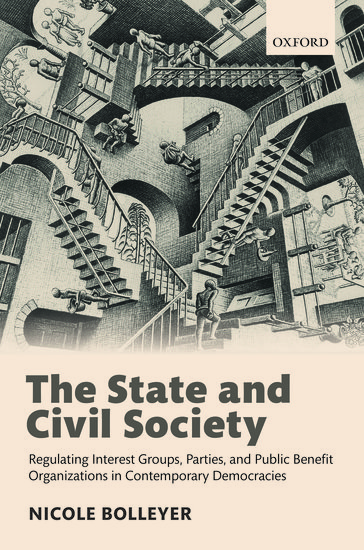
Regulating Interest Groups, Parties, and Public Benefit Organizations in Contemporary Democracies

Regulating Interest Groups, Parties, and Public Benefit Organizations in Contemporary Democracies

This book examines how interest groups, political parties, and public benefit organizations are legally regulated in 19 democracies. It it develops and empirically examines a new interdisciplinary theory on why democracies adopt permissive or constraining regulation of civil society organizations.
Levertijd op aanvraag
State regulation of civil society is expanding yet widely contested, often portrayed as illegitimate intrusion. Despite ongoing debates about the nature of state-voluntary relations in various disciplines, we know surprisingly little about why long-lived democracies adopt more or less constraining legal approaches in this sphere, in which state intervention is generally considered contentious.
Drawing on insights from political science, sociology, comparative law as well as public administration research, this book addresses this important question, conceptually, theoretically, and empirically. It addresses the conceptual and methodological challenges related to developing systematic, comparative insights into the nature of complex legal environments affecting voluntary membership organizations, when simultaneously covering a wide range of democracies and the regulation applicable to different types of voluntary organizations. Proposing the analytical tools to tackle those challenges, it studies in-depth the intertwining and overlapping legal environments of political parties, interest groups, and public benefit organizations across 19 long-lived democracies. After presenting an innovative interdisciplinary theoretical framework theorizing democratic states' legal disposition towards, or their disinclination against, regulating voluntary membership organizations in a constraining or permissive fashion, this framework is empirically tested. Applying Qualitative Comparative Analysis (QCA), the comparative analysis identifies three main 'paths' accounting for the relative constraints in the legal environments democracies have created for organized civil society, defined by different configurations of political systems' democratic history, their legal family, and voluntary sector traditions. Providing the foundation for a mixed-methods design, three ideal-typical representatives of each path - Sweden, the UK, and France - are selected for the in-depth study of these legal environments' long-term evolution, to capture reform dynamics and their drivers that have shaped group and party regulation over many decades.